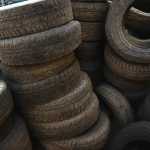Finding the Best Tip Near You
Tip near me – it’s one of the most common searches when you need quick, reliable waste disposal. Whether you’re clearing out your home, garden, or business, finding a local tip near you can simplify the entire process. Proper waste management not only helps the environment but also keeps your neighborhood clean and safe. Local tips and dumps offer convenient locations for disposing of all types of waste, from general rubbish to recyclables and green waste. Knowing where to find these services and how they operate helps ensure you manage your waste responsibly and efficiently.
What Is a Tip and Why Use One?
A tip, also known as a landfill or waste disposal site, is a designated area for waste collection and management. They play a vital role in the community by providing a safe place to discard garbage. Using a local tip helps you comply with environmental regulations. Proper waste disposal helps minimize pollution and promotes sustainability. Tips provide facilities for sorting different waste types, aiding in recycling efforts.
Here are reasons to use a tip:
- Safe disposal of household waste
- Supports community cleanliness
- Reduces illegal dumping
By utilizing local tips, individuals actively contribute to a healthier environment and community.
How to Find a Tip Near You
Finding a tip near you can streamline your waste disposal process. Start by checking online resources such as local government websites. Many provide maps and details about nearby waste facilities. Search engines and map applications are also helpful. Input terms like “garbage dump near me” or “dump site near me” for location-specific results. Some apps even provide operating hours and contact information. Here’s a quick checklist for finding tips:
- Local government websites
- Search engines and maps
- Waste management company sites
- Community forums and groups
Consider contacting local waste management services directly. They can offer current information and answer questions about specific facilities near you.
Types of Waste Accepted at Local Tip
Different tips accept varying types of waste. It’s essential to know which items are permitted to avoid unnecessary trips. Most tips handle common household waste and recyclables. Some facilities may also accept bulky items like furniture and appliances. However, special items like electronic waste or hazardous materials might have restrictions. Check facility guidelines before bringing such items.
Here’s a list of common waste types accepted:
- General household waste
- Recyclable materials (paper, plastic, glass)
- Bulky items (furniture, appliances)
- Green waste (yard clippings, branches)
- Scrap metal

Always verify the specific types allowed at your local tip. This ensures compliance with rules and improves efficiency during visits.
Checking Tip Opening Hours and Availability
Knowing a tip’s operating hours can save you time and effort. Most tips have specific schedules for different waste types. Check whether they are open on your intended visit day. It’s also wise to confirm any holiday closures. Some facilities may alter their hours during peak seasons or events. This can prevent unexpected surprises upon arrival.
Here’s how to check:
- Visit the tip’s official website.
- Call the facility directly.
- Check local government resources.
- Look for posted signs at the site.
Taking the time to confirm operating hours ensures a smooth and efficient disposal process.
Costs, Free Services, and Tip Passes
Navigating the costs of waste disposal can be puzzling. Each tip may charge differently based on waste type and volume. Understanding these fees helps you avoid surprises. Many tips offer free services for certain waste types. For example, green waste disposal might be free on select days. Checking this beforehand can save on disposal costs. Certain councils provide tip passes to residents. These passes often allow a set number of free visits. To learn more about potential savings, explore these options:
- Check your local council’s website.
- Inquire at the tip’s service desk.
- Review any local mailed publications.
Being informed about potential costs and free services ensures a more budget-friendly waste disposal experience.
What to Know Before You Go: Rules and Guidelines
Before heading to a tip, understanding rules is essential. Each site has specific guidelines to ensure safety and efficiency. Being prepared can smooth your visit. It’s crucial to segregate waste before leaving home. Many tips require separation between recyclables and other waste types. This preparation helps speed up the process. Some tips may have restrictions on the types and quantities of waste accepted. Check these rules to avoid being turned away:
- Review the tip’s website for guidelines.
- Contact the facility for specific information.
- Observe posted rules and signage at the site.
By understanding these guidelines, you contribute to a safer, more efficient waste disposal experience.
Green Waste, Hazardous Waste, and Special Items
Managing green waste and hazardous items requires special attention. Not all tip handle these waste types, so it’s vital to research options. Green waste disposal might be free at some tips. Hazardous waste, like chemicals or batteries, often requires specific disposal methods. Many tips host special collection days for such items. Ensure you know the schedule in advance to plan your visit. Special items like electronics or bulky objects might incur extra fees. Familiarize yourself with tip policies to avoid surprises:
- Verify the disposal process for green waste.
- Ask about hazardous waste events.
- Check costs for special item disposal.
Proper disposal of these materials protects the environment and public health.
Sustainable Waste Management and Recycling Tips
Adopting sustainable waste practices benefits the environment and community. Recycling reduces landfill pressure and conserves resources. Understanding your local recycling guidelines ensures your efforts contribute effectively. Consider separating recyclables at home to streamline your trips to the tip. Many tips provide convenient recycling options. Explore community programs that offer incentives for recycling.
To minimize waste, adopt these habits:
- Buy products with less packaging.
- Compost organic waste at home.
- Opt for reusable items over disposable ones.
These practices not only cut down on waste but also promote a cleaner planet. By embracing sustainable habits, we can all play a part in waste reduction.
Frequently Asked Questions About Local Tips
When planning a trip to a local tip, several questions might arise. Knowing the answers in advance can simplify your visit and save time. Common concerns often include tip opening hours, accepted waste types, and disposal fees.
For example, many people wonder:
-
Is the tip open today?
-
What types of waste are accepted?
-
Are there free disposal options for green waste or bulky items?
The best way to find accurate answers is to check your local waste management provider’s website or call the facility directly. This helps avoid wasted trips and ensures you’re prepared for the types of waste you’re bringing.
Looking for a Tip Near Me – in Western Australia?
If you live in Perth, Mandurah, Rockingham, Bunbury, Harvey, Waroona, Pinjarra, Boddington, Dwellingup, Brunswick, Australind, Busselton, Dunsborough, Margaret River, or Augusta, Peel Resource Recovery is the best tip near you.
We operate four licensed tip facilities and transfer stations across the Peel and South West regions — offering easy access for all your waste disposal needs.
Whether you’re dropping off general rubbish, green waste, or recyclables, or need skip bin hire, we’ve got you covered.
👉 Click here to find your nearest facility or book a skip bin




